When my husband Pete suggested a few years ago that we move to Washington DC, where he had started spending a long time working, the first thing I felt when I thought about leaving our cluttered, colorful kitchen in Oxfordshire was acute. homesickness. My safety, my identity, and my heart were built into the walls of the cottage and infused into the landscape beyond, all of which meant home. And homesickness is the emotion I fear most. It’s one of my strongest childhood memories and part of the reason I hated school, even though I wasn’t even in boarding school. I always just wanted to be home again.
I inherited this longing for home from my mother and the circumstances of her life. I spent my earliest childhood in Oxford, but she wanted my sister Nell and I to have a childhood in the country. My childhood came into clear, beautiful focus on my seventh birthday, when we moved to a remote village in Wiltshire.
When I describe the life our parents created for us there, it sounds ridiculously romantic, but that’s because it was: we had ponies in the kitchen, picnics in the bluebell forest, friends who lived barefoot and walked across the fields. We went to the village school and until I was much older I rarely went to London or any other city. We were extremely lucky.
That childhood ended on November 25, 1991, when Mom suffered a horse riding accident that severely damaged her mental and physical brain. I was 16 and everything was lost that day. After caring for her at home for two years, Mom had to be cared for by specialists. She lived in a nursing home where she stayed for another twenty years until her death when I was in my late thirties. Our house was sold.
That period in my late teens and twenties was dark for a long time, but Nell and I turned to be held and healed by horses and the wet, green landscape of southern England. She founded Gifford’s Circus, and I began writing and having children, later creating a childhood for my own five children that looked – and felt – just like the childhood Mom had created for us.
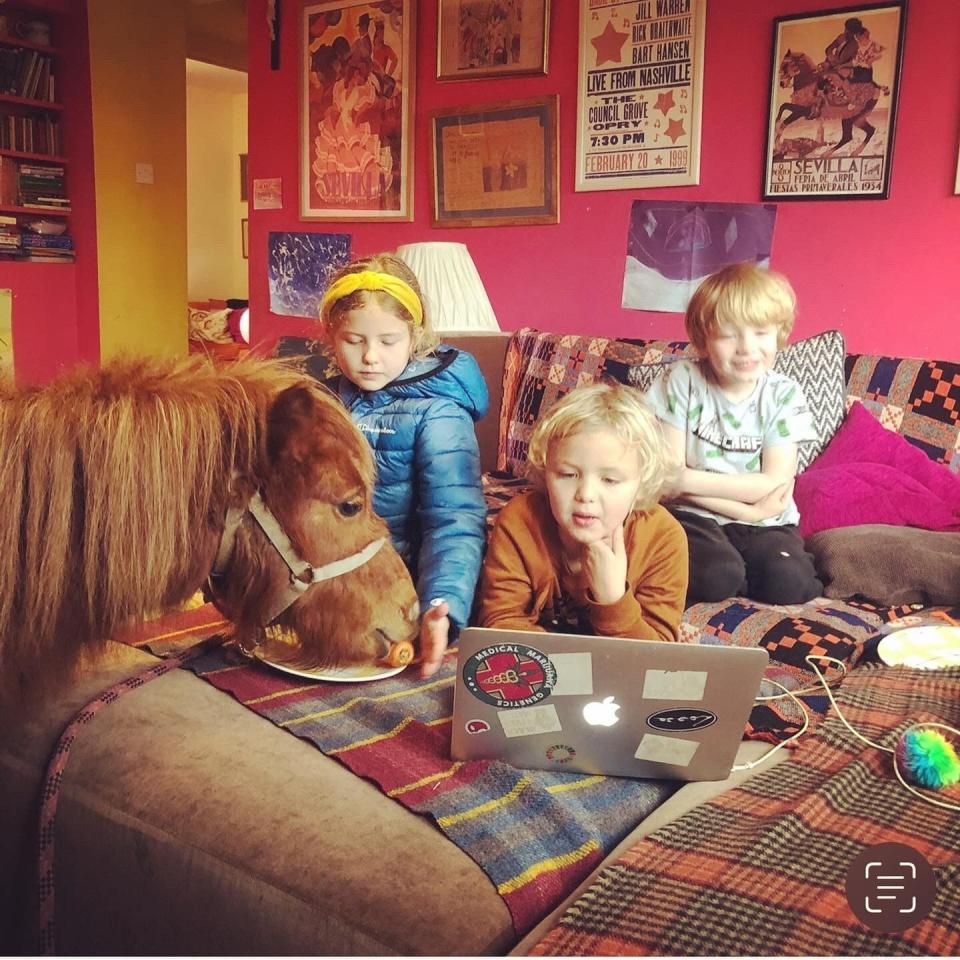
As our family grew, Pete and I moved from Oxford, where we lived when we met, to a cottage in Oxfordshire, within sight of the Bronze Age chalk horse on the hill at Uffington. I decorated our house with mismatched rugs and mugs from charity shops, where dogs slept on the sofas and we had Shetland ponies in the garden. I felt close enough to the village where I grew up in Wiltshire to feel local, but not so close that I felt haunted by the past. And for the first time in my adult life, the homesickness that had haunted me since my mother’s accident was gone, only starting again, like an alarm, when Pete suggested I leave the house, the hill and the ponies and go to America to move.
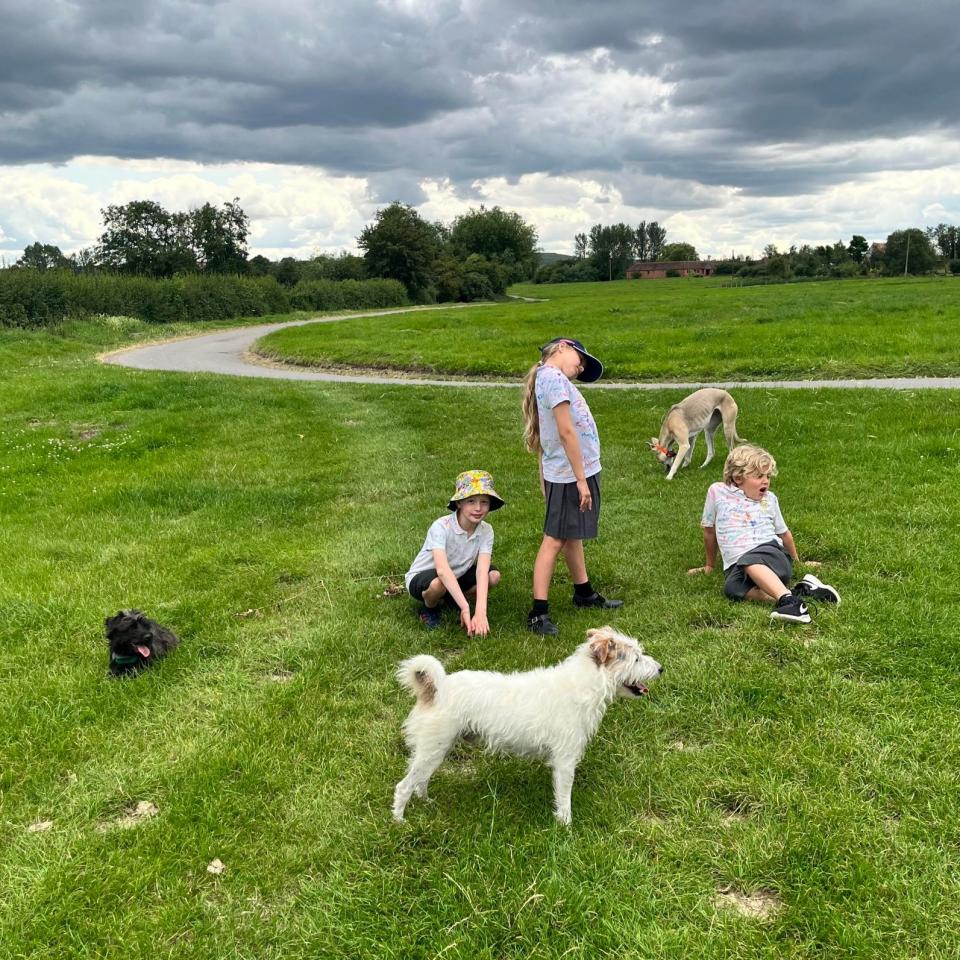

We debated for a long time about what to do. Pete was in America a lot and missed the children’s childhood, and I missed him desperately. I love adventure and am not afraid of challenges, so America’s horizon was exciting. I even lived there for a while in my twenties, on a horse ranch in Texas.
But a less rational, more emotional part of me also clung very tightly to home. Home and roots are not something that can be forged hastily or without meaning, nor is it something that can be thrown away lightly. They are very valuable. The friendships I had in Oxfordshire, with the farrier who came to shoe my ponies, with the travelers down the road who became good friends after Nell died of cancer in 2019, with the ladies in the village shop I chatted to and the mothers in the Depoort from the village school was far, far more important to me than the idea of a shiny new American life.
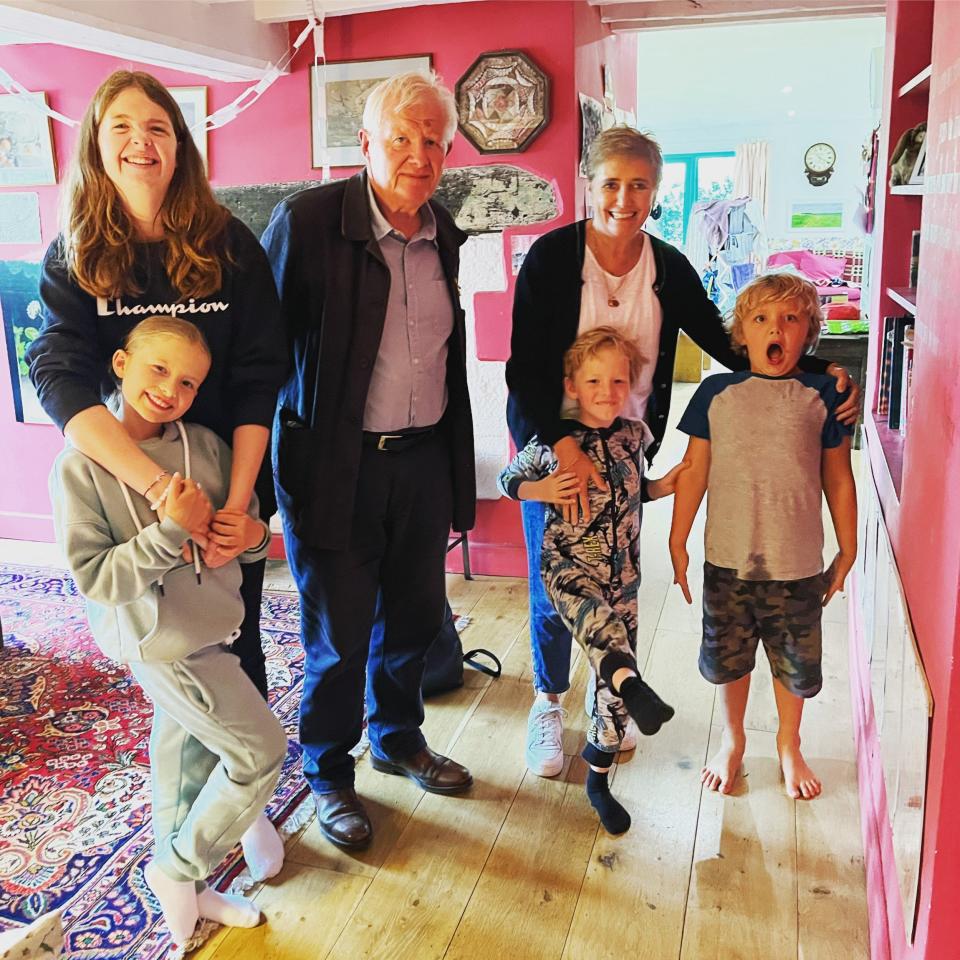

Our children attended local public schools so had many friends in nearby villages. I felt emotionally and spiritually invested in this muddy, cluttered bit of rural England, which thankfully hasn’t been turned into a country club for millionaires, unlike some of the Cotswolds. And yet I knew that what Pete was offering was also an adventurous opportunity, and for the sake of my marriage, I ultimately realized that I had to leave.
Last summer, with tenants in the house and foster homes found for the cats, dogs, and horses, I flew to DC with our younger children, Evangeline, Dash, and Lester, to join Pete. My eldest children, Jimmy and Dolly, stayed at university in England.
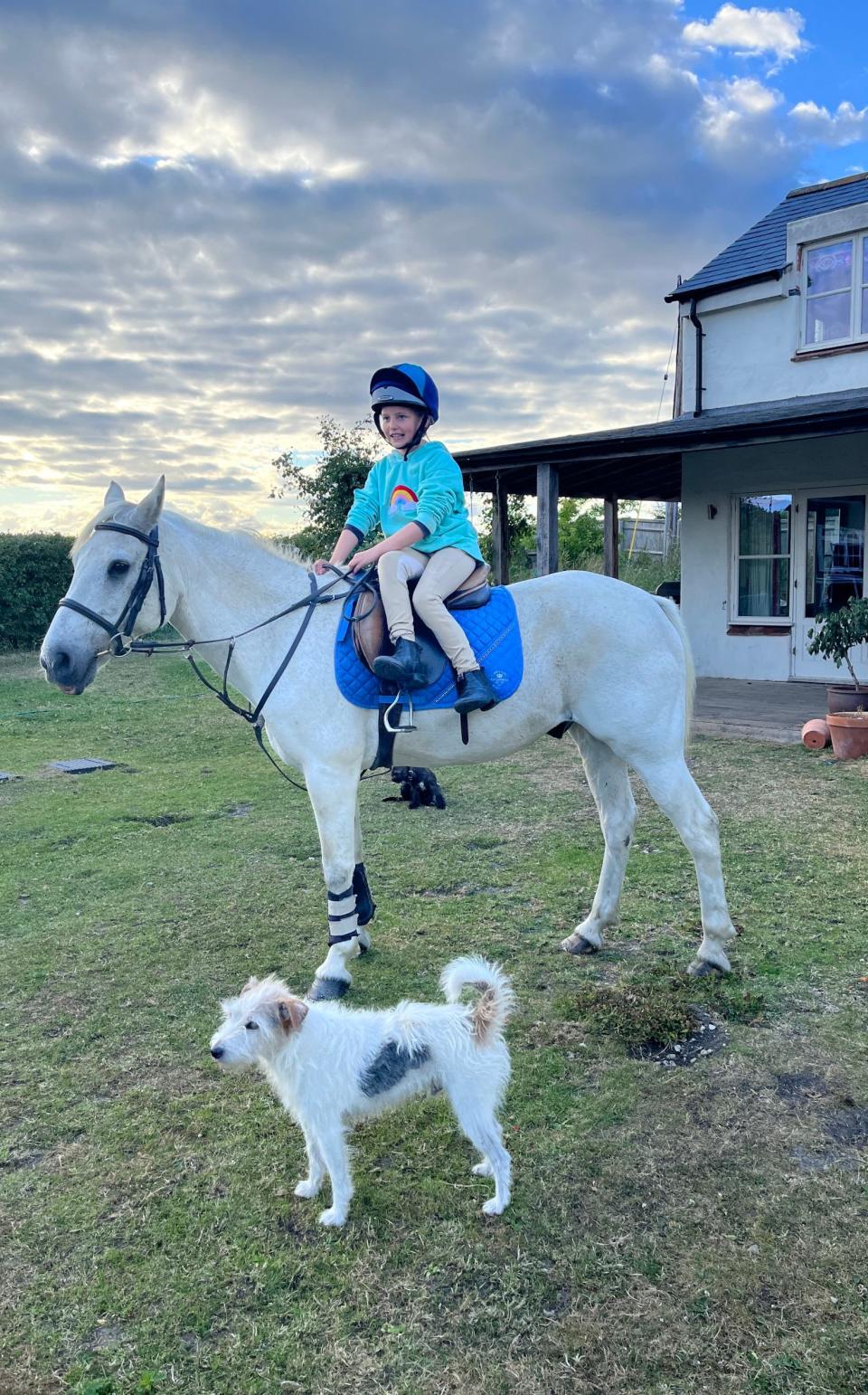

What I remember most clearly from those first sweaty weeks, when the heat pushed off the sidewalks and my hair was permanently damp and frizzy, was the unsettling feeling of everything familiar sliding out of reach as life took on the sharp angles of a brand new to live. kind of chaos. I had thought I was a capable person who knew how to get things done, but for a while I lost everything, from my sanity to my favorite clothes, to the bread knife and the notebook where I wrote down everything that was important. None of my chargers have ever worked.
Things I could do instinctively – cooking, driving, writing – felt completely overwhelming, my brain exhausted by the hundreds of small, new decisions I was making every day. Even a simple chore, like a trip to the grocery store, felt daunting as I tried to choose between hundreds of different types of bread, cereal, and flour. One time I simply abandoned the shopping cart and ordered pizza, although I quickly learned that you can’t beat an American supermarket when it comes to an excellent range of highly addictive corn snacks.
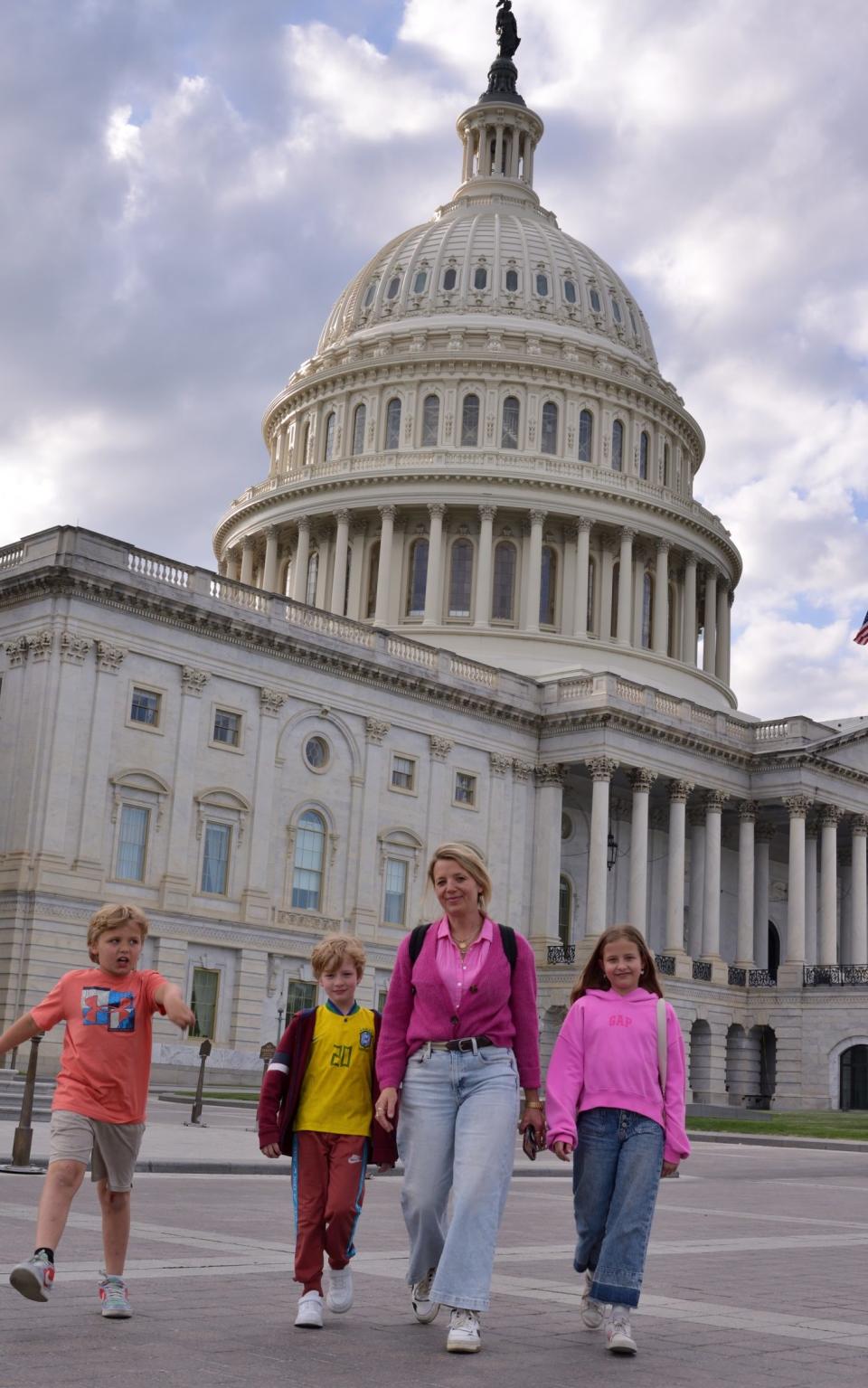

I felt so homesick that I had to stop looking at social media images of my friends in beloved, familiar landscapes from home. Sometimes I felt like my life had been reduced to being stuck in underground parking garages in an oversized car at an exit barrier that refused my bank card.
Most of all, I was confused by how strange America felt. I’ve consumed vast amounts of American novels, television shows, movies, and music, but living here is something else entirely, and in some ways our shared language makes the shock of being abroad even more confusing. I learn that this land is stranger and wilder than anything I had prepared for; the food, the education, the humor, the language, the climate, the landscape and the emotional sensibilities are all very different from our own, and the structure of this vastly multicultural society defies definition.
This also makes it beautiful and exciting: on a normal Saturday we can take our sons to karate lessons with their Iranian-American teacher, followed by lunch at an Ethiopian cafe and coffee at a Jewish deli, before driving into rural Pennsylvania to finish to be seen in the afternoon. an Amish quilt sale and buying tacos at a Tex-Mex cafe on the way home. I love the wild sense of possibility here, and the clash of an infinite number of cultures and races that cannot be compared anywhere else.
Looking back, I can see that all of us, except Pete, who had already acclimated, went through a period of acute culture shock, something that has slowly and gently subsided as we have begun to create a sense of home, albeit temporarily, in DC. Autumn brought with it the sweet thrill of an American Halloween, with life-size pirate ships with model skeletons and huge inflated ghosts decorating houses, and trick or treating – a huge, communal activity, with adults chatting around the fire in the lawn while the kids darted around like crazy with pillowcases full of candy.
I love the American impulse to decorate the outsides of houses, not just for Halloween but for any festival, light-up candy canes and life-size sleds on the front lawns that stick around until February, when they’re replaced with funky pink lights and inflated hearts , for Valentine’s Day, and then quickly replaced with bright green shamrocks made of tinsel for St. Patrick’s Day.
In the winter, the snow was thick and bright white everywhere for ten days, and Dash and Lester made forty dollars shoveling snow off the front lawn like they were in a movie. Early spring has brought the amazing foam of cherry blossoms across the Tidal Basin, and we have favorite walks through Rock Creek Park, which provides a surprising sense of the wild, natural world right in the middle of the city, just steps away from the darkened areas . SUVs and presidential cavalcades from the White House.
Everything in America is bigger, of course, but embracing these seasonal rituals has made the children feel at home in a city that is completely at odds with the rural landscape they knew as home. We wanted the children to go to American state schools, and they exchanged their village school, where they knew all one hundred students, for much larger schools with an incredibly varied intake, where recess was exchanged for recess, a coat rack for lockers and gym for basketball , and learning about periods of American history they knew nothing about.
The definition of home will always be England, and sometimes I feel contented when I see how much the children miss the fields around our house, the green where they played and the village shop where they went to get Haribos. I’m glad that the landscape I love so much is in their souls and is the place they think of when we talk about home, but it’s exciting to see their horizons literally expand through the experience of our great American adventure. I still feel homesick, of course, but transplanting our lives also shows me that home can be as much a feeling as a place, and can be represented more by a person than a feeling, because more than anywhere else, there is home for me at Pete’s. .
The Giant on The Skyline by Clover Stroud (Doubleday) is out now